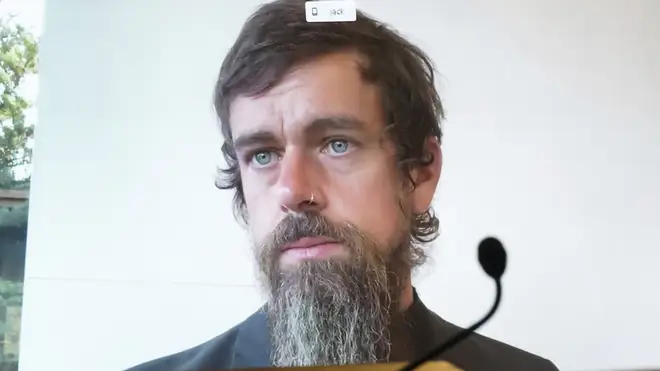
Shelagh Fogarty 1pm - 4pm
28 October 2020, 21:14

Jack Dorsey, Mark Zuckerberg and Sundar Pichai appeared before the US Senate Commerce, Science and Transportation Committee.
The chief executives of Twitter, Facebook and Google have been criticised by US Republican senators for alleged anti-conservative bias in the companies’ social media platforms and received a warning of coming restrictions from Congress.
Politicians from both parties are assessing the companies’ power and are looking to challenge their long-enjoyed legal protections for online speech.
The Trump administration, seizing on unfounded accusations of bias against conservative views, has asked Congress to strip some of the protections that have generally shielded the tech companies from legal responsibility for what people post on their platforms.
“The time has come for that free pass to end,” said Senator Roger Wicker, chairman of the Senate Commerce, Science and Transportation Committee.
Republican Mr Wicker said the laws governing online speech must be updated because “the openness and freedom of the internet are under attack”.
He spoke at the opening of the hearing as Twitter boss Jack Dorsey, Facebook’s Mark Zuckerberg and Google’s Sundar Pichai waited to testify via video.

Mr Wicker cited the move this month by Facebook and Twitter to limit dissemination of an unverified political story from the conservative-leaning New York Post about Democratic presidential nominee Joe Biden.
The story, which was not confirmed by other publications, cited unverified emails from Mr Biden’s son Hunter that were reportedly disclosed by President Donald Trump’s allies.
Republicans, led by Mr Trump, have accused the social media platforms, without evidence, of deliberately suppressing conservative, religious and anti-abortion views.
In their prepared testimony, Mr Dorsey, Mr Zuckerberg and Mr Pichai addressed the proposals for changes to a provision of a 1996 law that has served as the foundation for unfettered speech on the internet.
Critics in both parties say that immunity under Section 230 enables the social media companies to abdicate their responsibility to impartially moderate content.
Mr Zuckerberg acknowledged that Congress “should update the law to make sure it’s working as intended”.
Mr Dorsey and Mr Pichai urged caution in making any changes.
“Undermining Section 230 will result in far more removal of online speech and impose severe limitations on our collective ability to address harmful content and protect people online,” Mr Dorsey said.
Mr Pichai appealed to legislators “to be very thoughtful about any changes to Section 230 and to be very aware of the consequences those changes might have on businesses and consumers”.
The hearing room was nearly empty except for Mr Wicker and a few colleagues but their questioning was sharp as tempers flared among members.
“Twitter’s conduct has by far been the most egregious,” Republican senator Ted Cruz told Mr Dorsey.
Mr Cruz cited Twitter’s limitations on the newspaper story as part of “a pattern of censorship and silencing Americans with whom Twitter disagrees”.

Democratic senator Brian Schatz was critical of Republicans, saying the hearing was a “sham”.
Mr Trump earlier this year signed an executive order challenging the protections from legal action under the 1996 telecommunications law.
Assistant attorney general Stephen Boyd told congressional leaders in a letter on Tuesday that recent events have made the changes more urgent, and said the restrictions by Twitter and Facebook related to the newspaper story were “quite concerning”.
Ajit Pai, chairman of the independent Federal Communications Commission, recently announced plans to re-examine the legal protections – a change from the agency’s previous position.
Social media giants are also under heavy scrutiny for their efforts to police misinformation about the US election.
Twitter and Facebook have imposed a misinformation label on content from the president, who has around 80 million followers.

Starting on Tuesday, Facebook did not accept any new political advertising.
Previously booked political ads will be able to run until the polls close November 3, when all political advertising will temporarily be banned.
Google, which owns YouTube, also is halting political ads after the polls close. Twitter banned all political ads last year.
Democrats have focused their criticism of social media mainly on hate speech, misinformation and other content that can incite violence or keep people from voting.
They have criticised the tech bosses for failing to police content, homing in on the platforms’ role in hate crimes and the rise of white nationalism in the US.
Facebook, Twitter and YouTube have scrambled to stem the tide of material that incites violence and spreads lies and baseless conspiracy theories.
The executives rejected accusations of bias.
“We approach our work without political bias, full stop,” Mr Pichai said. “To do otherwise would be contrary to both our business interests and our mission.”